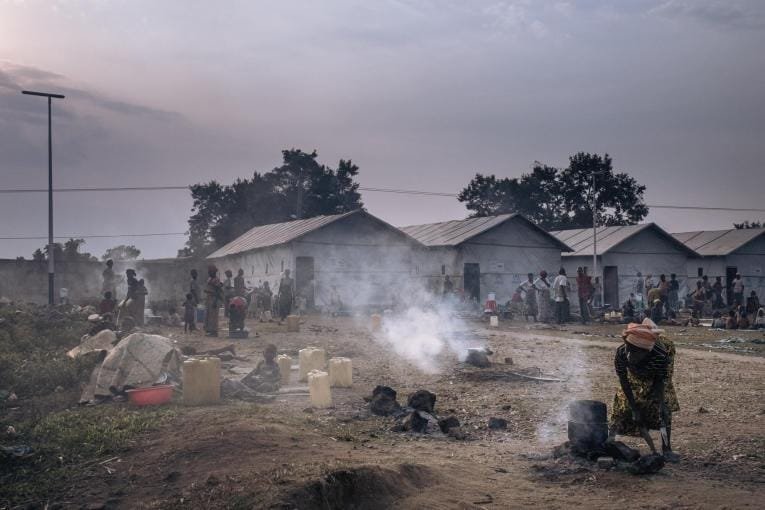[ad_1]

A humanitarian disaster is underway in North Kivu, warns Médecins Sans Frontières, which calls on the international community and the authorities to urgently increase their efforts to meet the needs of the population. Over the past 12 months, an estimated one million people have fled fighting linked to the resurgence of the M23 armed group, causing “a crisis within a crisis” in eastern DRC. Displaced people, but also entire communities isolated by the fighting, are facing a critical health situation, with in particular an increase in cases of measles and cholera in certain sites hosting displaced people. In this context, the response is today largely insufficient in North Kivu, which has 2.5 million displaced people.
” Our teams are hard at work preventing epidemics but they are completely overwhelmed, warns Raphaël Piret, MSF representative in the DRC. Faced with the humanitarian and health disaster unfolding before our eyes, all response actors must strengthen assistance to displaced people – in Goma and outside – by demonstrating greater responsiveness and flexibility. »
Within months, hundreds of thousands of people were forced to flee their homes and villages – 300,000 in February alone. Around Goma, makeshift shelters are piling up as far as the eye can see, while churches and schools offer many families a precarious refuge.
“We arrived here last June and settled into a disused church in Kanyaruchinya with nearly 150 other families.s” says Célestine, 65 years old. ” Only one food distribution has taken place since the beginning of the year “.
Around 3,000 shelters, currently hosting around 15,000 people, have been built over the past year on the outskirts of Goma; a figure far too low in relation to the magnitude of the needs. In Bulengo, an informal camp located west of Goma, there is one latrine for nearly 500 people, ten times less than humanitarian emergency standards. Lack of clean water and latrines, combined with inadequate and overcrowded shelter, create conditions conducive to the emergence and spread of disease.
” In March, in Bulengo alone, we treated almost 2,500 patients with symptoms of cholera and more than 130 children suffering from measles explains Abdou Musengetsi, project coordinator for MSF in Goma. ” Entire families have been at the mercy of bad weather, epidemics and violence for months, as evidenced by the worrying number of victims of sexual violence that we treat every day in our structures.. »
MSF teams are providing free medical assistance, ensuring the supply of drinking water and installing showers and latrines in sites for informal displaced people on the outskirts of Goma.
North of Goma, MSF is also observing the consequences of this crisis in the territories of Masisi, Rutshuru and Lubero. Cut off from the rest of the province, because of the displacement of the front lines, the inhabitants can no longer sell their crops or buy basic necessities, with the exception of the few available products whose price has doubled.
” Due to a lack of financial means, a majority of the population simply no longer has access to healthcare. People have to choose between eating or treating themselves explains Monique Doux, project coordinator for MSF in Rutshuru. In addition, many medical structures are running out of drugs due to supply problems. In Rutshuru territory, for example, some health centers have not received medicine for months.
With rising prices and deteriorating access to care, malnutrition is on the rise. More than a third of the inhabitants of North Kivu, or 3 million people, are at risk of food insecurity according to the United Nations.
” In the health centers we support in Rutshuru territory, we treated more than 8,500 malnourished children in 2022, almost 70% more than in 2021 says the project coordinator for MSF in Rutshuru. (END)
Related
[ad_2]
Source link



